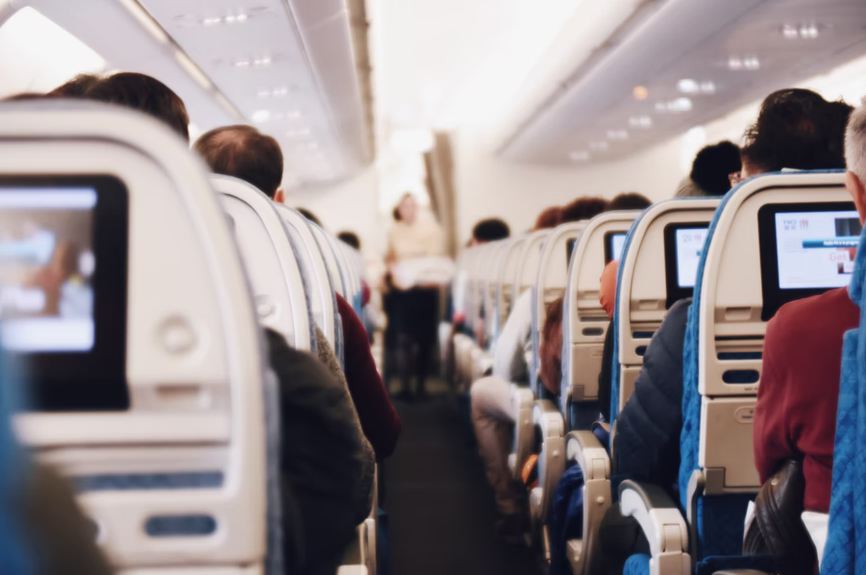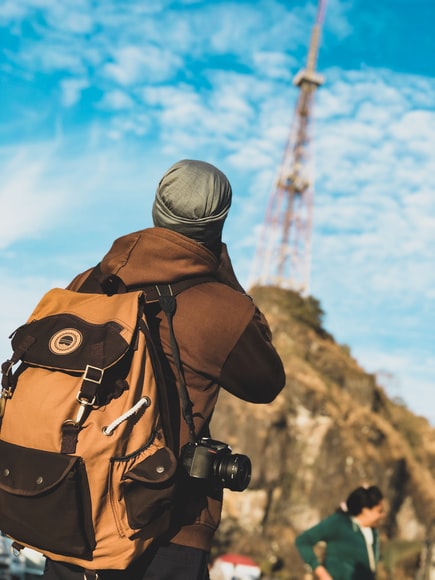Does taking trips by car, boat, train, or plane make you queasy? Well, you’re not alone! From children to adults, motion sickness can hit anyone during travels, often ruining a perfectly planned holiday. The great news is that the symptoms are preventable, and there are many ways you may be able to overcome the condition for good. So, let’s cut through the chase! Read on below on the many solutions that could help you focus on your trip and not on the motion sickness bag.
Watch your food consumption.
It’s vital that you eat an ample amount of food, especially when traveling long distances. Just be mindful to eat lighter foods, such as fruits and bread, to avoid bloating. Skip on heavy, spicy, and fatty foods, which are hard on the body and may worsen your motion sickness symptoms. Avoid consuming foods and liquids that don’t agree with your tummy, and refrain from excessive alcohol and smoking before and during the trip for a smooth vacation.
Find a strategic position.
Motion sickness occurs when motion-sensing parts of your body send conflicting information to your brain, ensuing a confused reaction from your brain and making you feel sick. So, always strive to choose a seat where you’d experience the least motion.
For instance, the back of the plane is usually bumpier. The seat in the middle of the aircraft or closer to the front as that area tends to be more stable. If you’re on a ship, opt for lower-level cabins near the ship’s center. It’s calmer than those situated on outer and higher cabins.
Balance your sensory cues.
Your eyes are often the main culprit in disrupting the congruence with the information transmitted to the brain. If what you see mismatches the cues from vestibules located on your inner ear, expect to experience motion sickness due to inaccuracy of input.
With that, you must ensure that you balance your sensory cues. When traveling by boat or car, it can significantly help to focus your gaze on a fixed point or the horizon. Doing so enhances your sensory congruence, allowing the brain to sense the motion better and match your body’s movement.
Keep yourself calm.
Stress and anxiety only worsen and make the symptoms of motion sickness last longer. If it’s your first time flying, it’s advisable to do some research or talk to someone who has flown on a plane before. That way, you could be aware of the common movements and sounds you may experience when flying, lessening your fright with them.
Be sure to go to the airport early so you won’t feel hurried and get more time to compose yourself. Alternatively, you can also learn about deep-breathing exercises or meditation, which can help you feel relaxed. Lastly, just adopt a positive mindset and look forward to the wonderful adventure ahead.
Veer away from people who are suffering from motion sickness.
There’s an emotional and psychological component to motion sickness. The more you think or dwell on it, the better chances of you actually getting sick. What’s worse is that people around you will often talk about what they’re feeling or are already becoming ill, making you feel sick yourself. If you can, isolate yourself from them and continue keeping your thoughts positive.
Avoid reading books or watching a movie.
You might get bored when traveling for long hours, enticing to read a book or watch a movie. Sure, it can keep you entertained, not until you start experiencing symptoms of motion sickness.
Your vision is fixed on reading material or the digital screen, making your brain think you’re still. However, as the vehicle goes over bumps, changes lanes, or takes turns, your body will feel the difference in the motion, starting the mixed signals in the brain.
So, save that good novel or flick once you arrive at your destination – it’ll be more enjoyable, sans any wooziness.
Take ginger.
Ginger has long been and widely used in history for its exceptional natural medicinal properties. Studies support that ginger effectively reduces nausea and prevents vomiting, making it an inexpensive yet novel ally in overcoming motion sickness.
Doctors usually prescribe taking 500 mg of ginger an hour before travel and 500 mg at 2-hour or 4-hour intervals when necessary. If you’re with your kids, they can take half the adult amount. Alternatively, you may also drink small sips of ginger sparkling water or ginger ale throughout the trip to get the same results.
Breathe fresh air.
While it’s not exactly clear why, breathing some air eases symptoms of motion sickness in many people. So, if you’re traveling by train, you can open the window periodically to get some fresh air. If you’re on a ship, go out of your cabin onto the deck instead. You can also make a few stops if you’re traveling by car and walk around for a few minutes, especially when you’re starting to feel lightheaded.
Use medication.
If your symptoms are more severe or remain a persistent problem, taking the over-the-counter medicine meclizine (Antivert, Bonine, Dramamine) can be an effective preventive measure against motion sickness. Just be mindful that it can cause drowsiness and dry mouth, so it’s advisable to consult a physician before your trip to talk about your best options.
Final Words
Motion sickness is genuinely an unpleasant condition. Luckily, you may follow these tips to prevent or manage the symptoms before they go out of hand. Hopefully, all you’ll have is a memorable and motion sickness-free outing. It is also recommended that you’ll use these translation apps while you are traveling. Happy travels!



